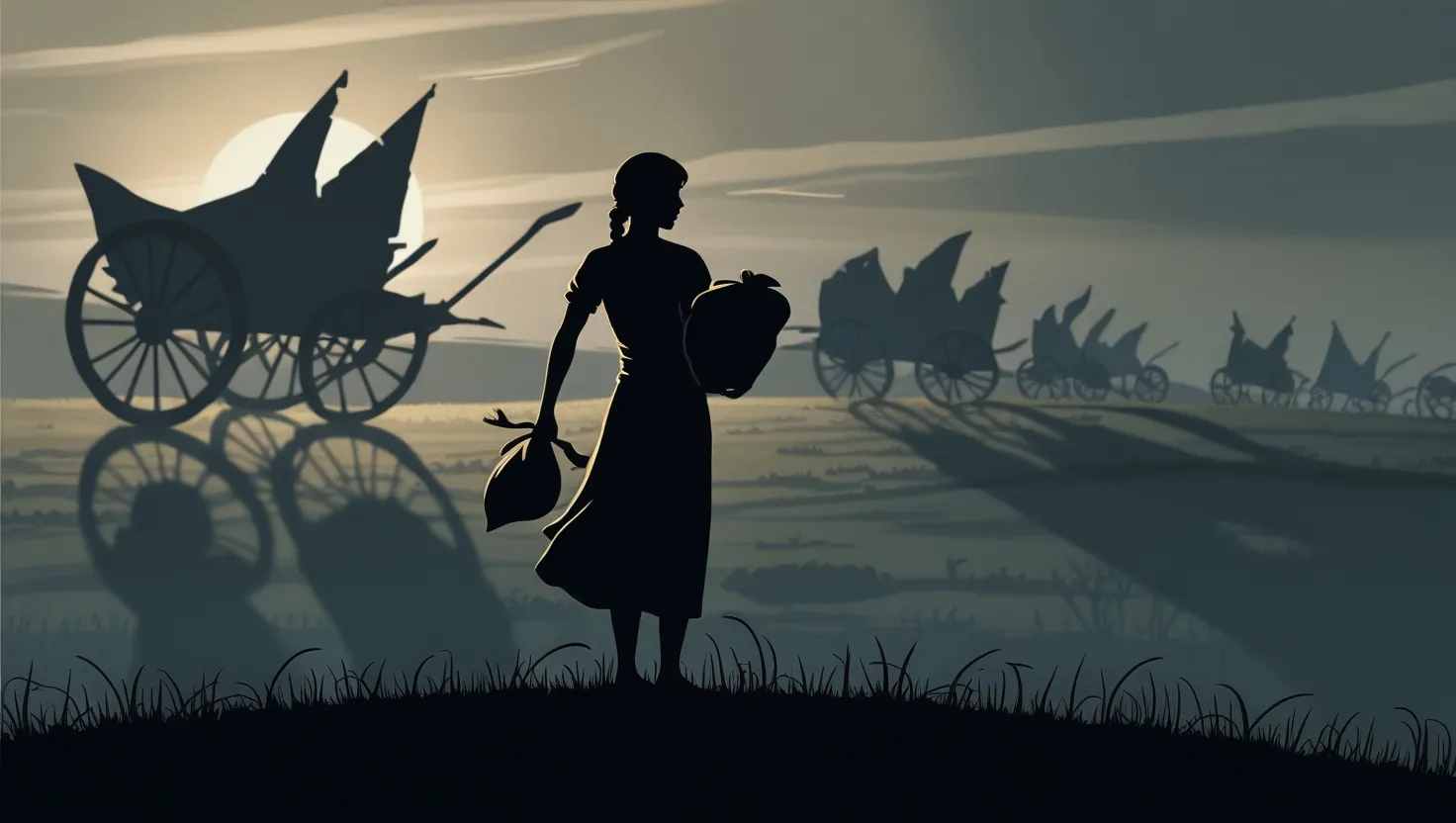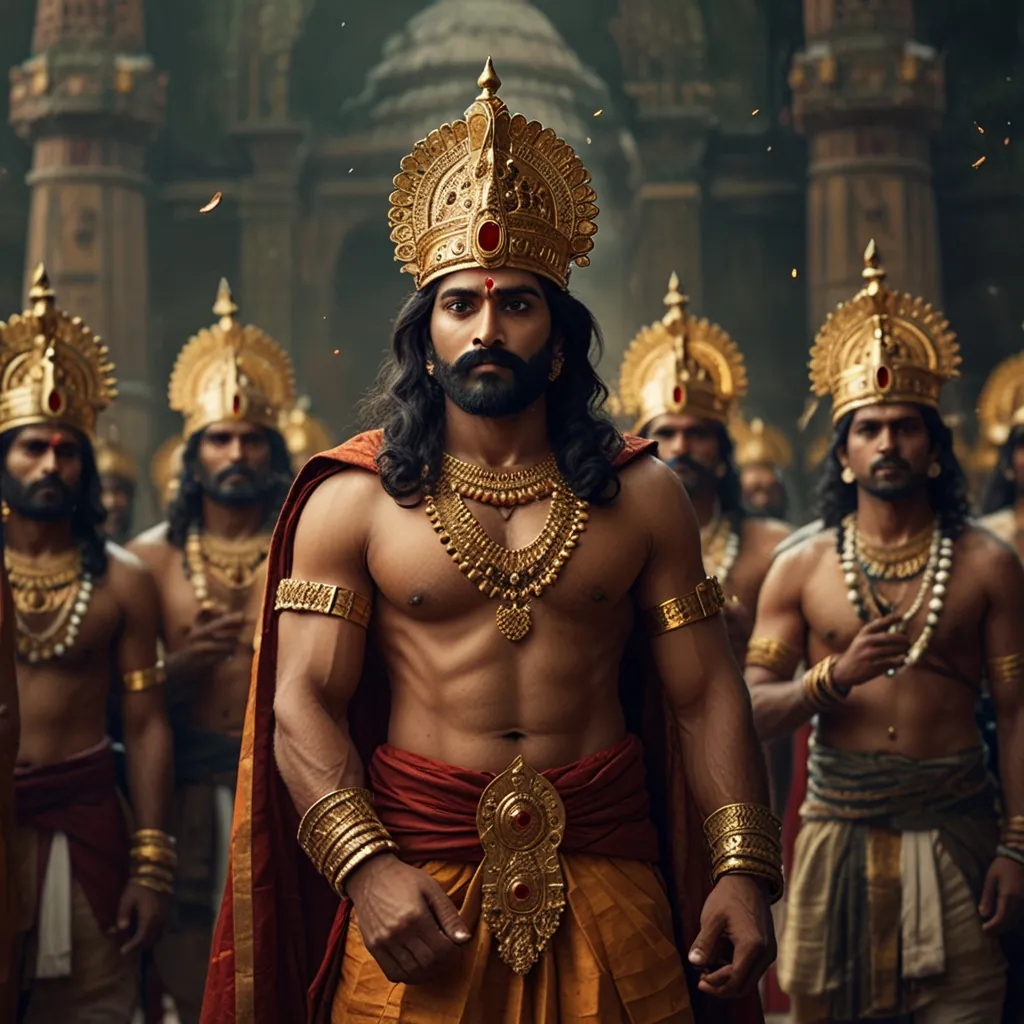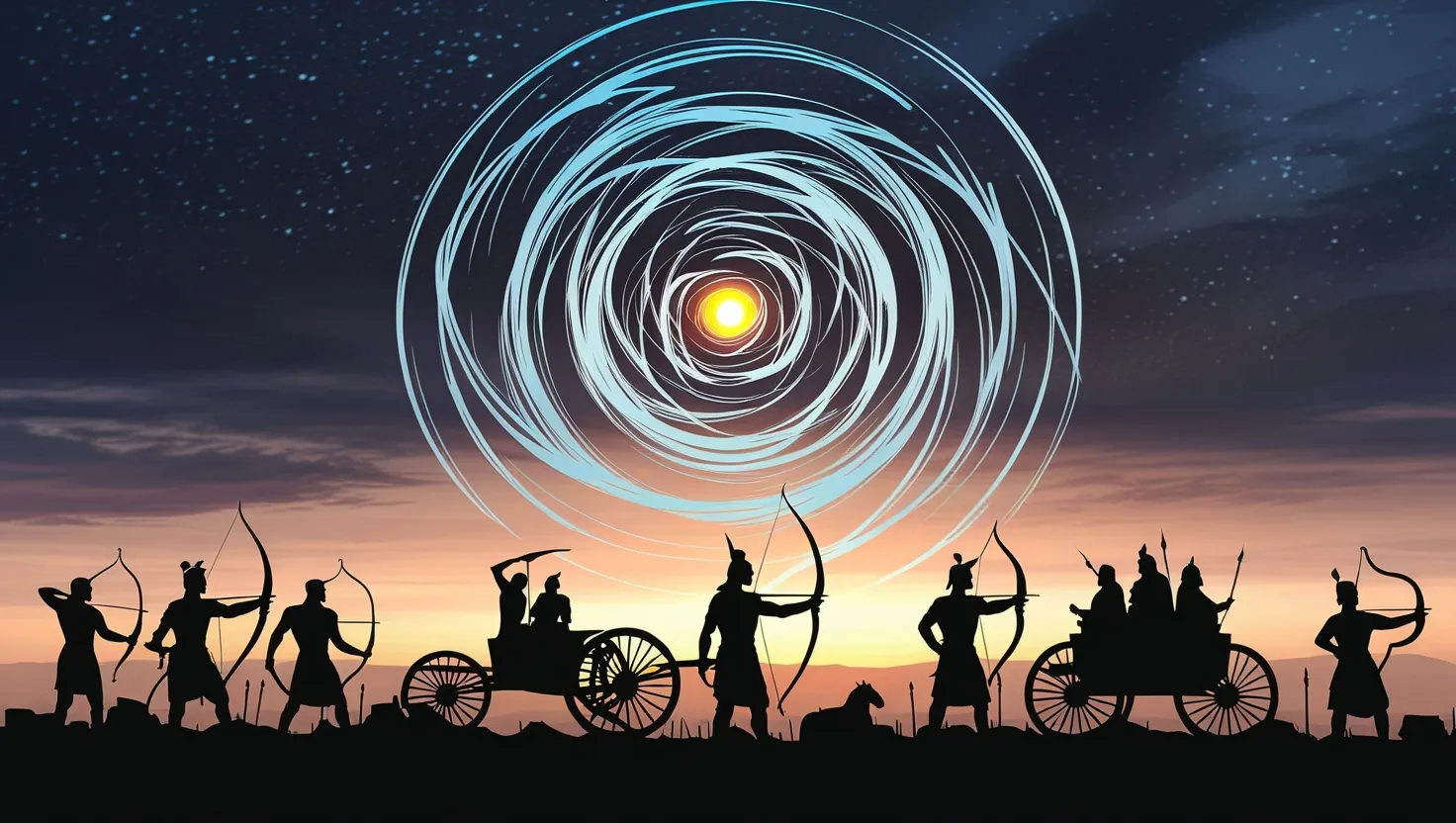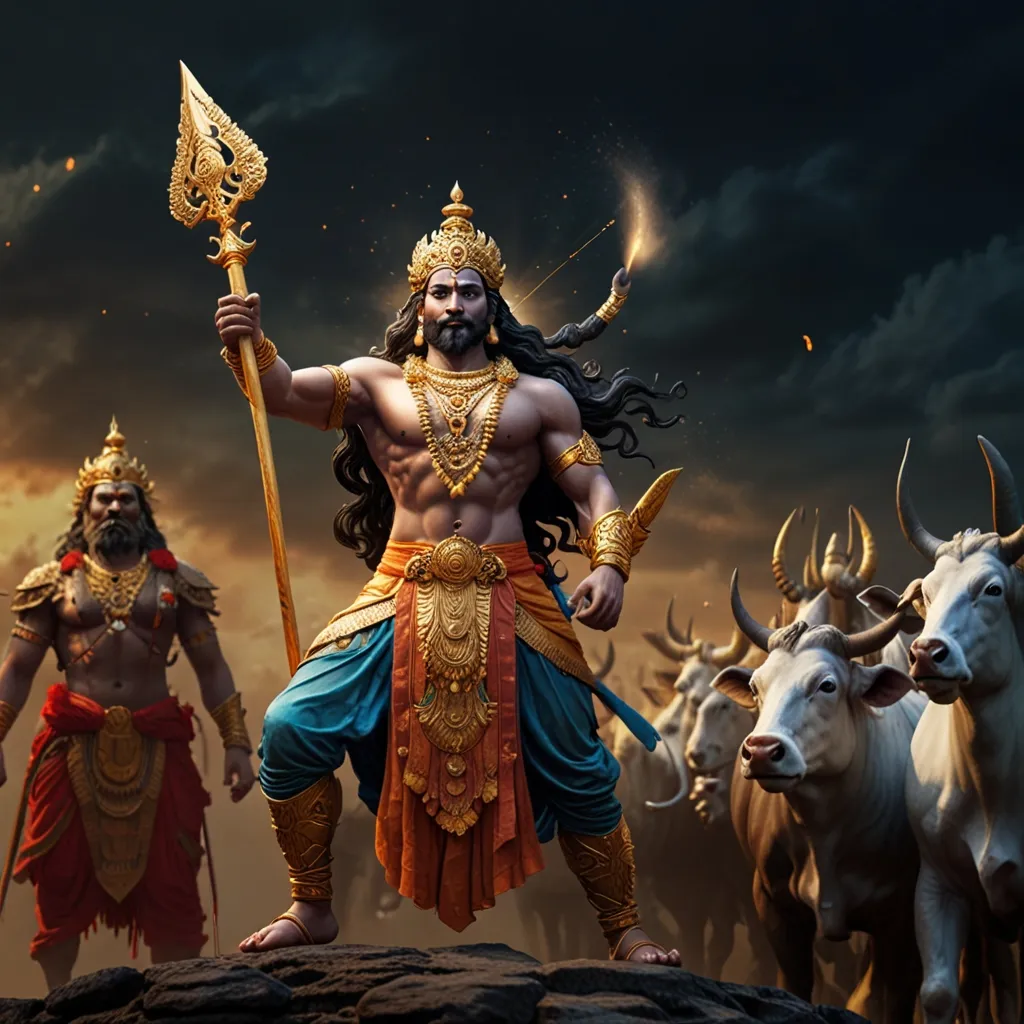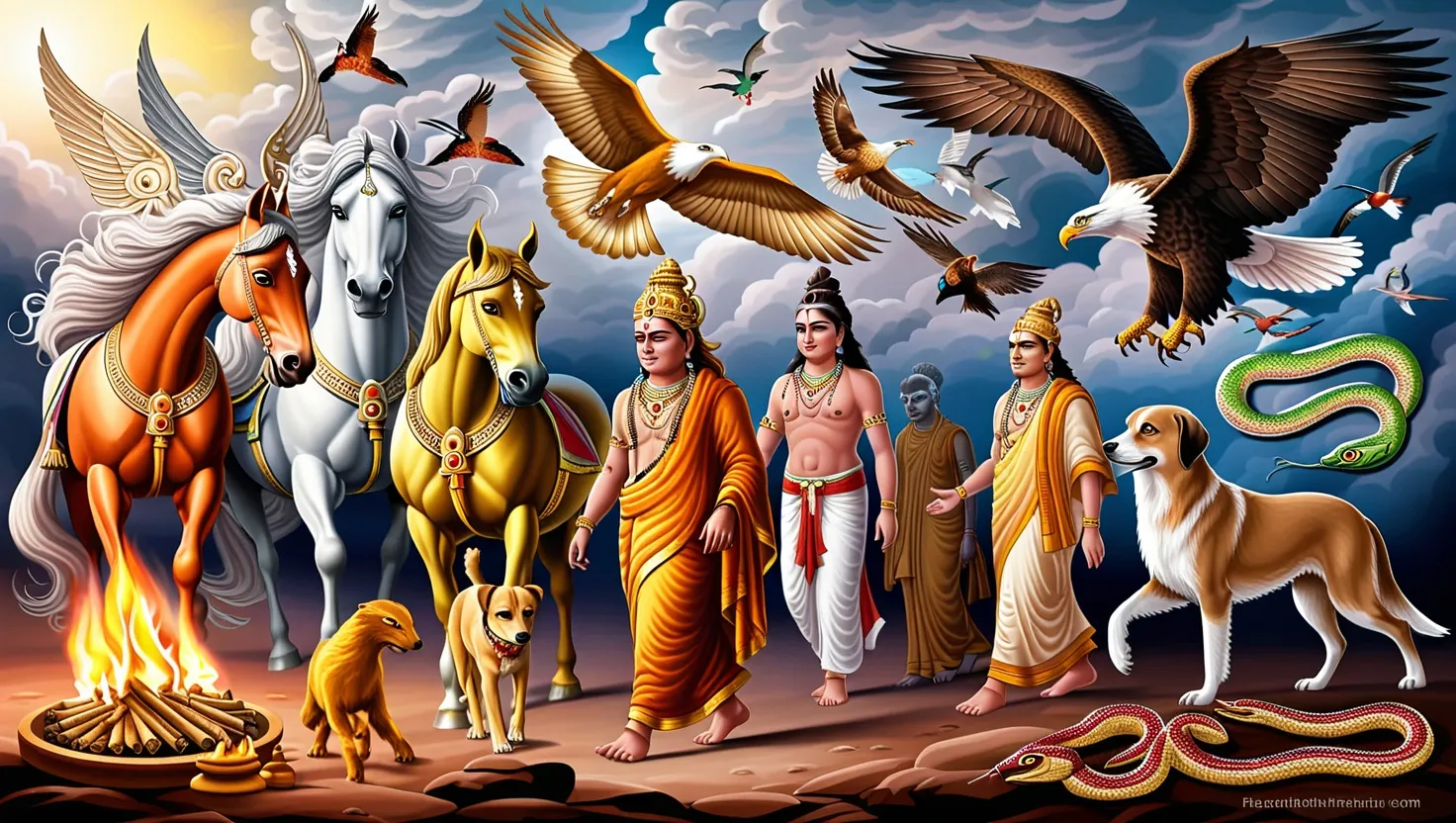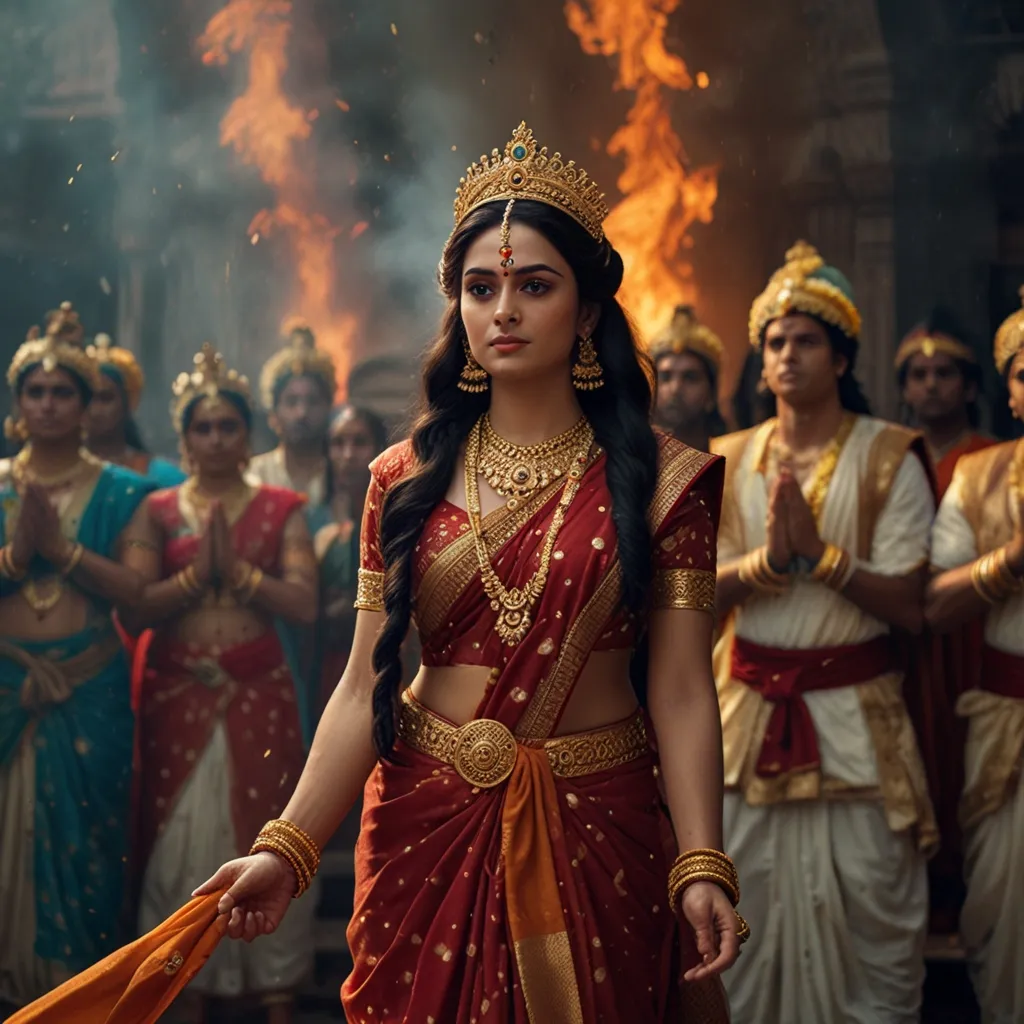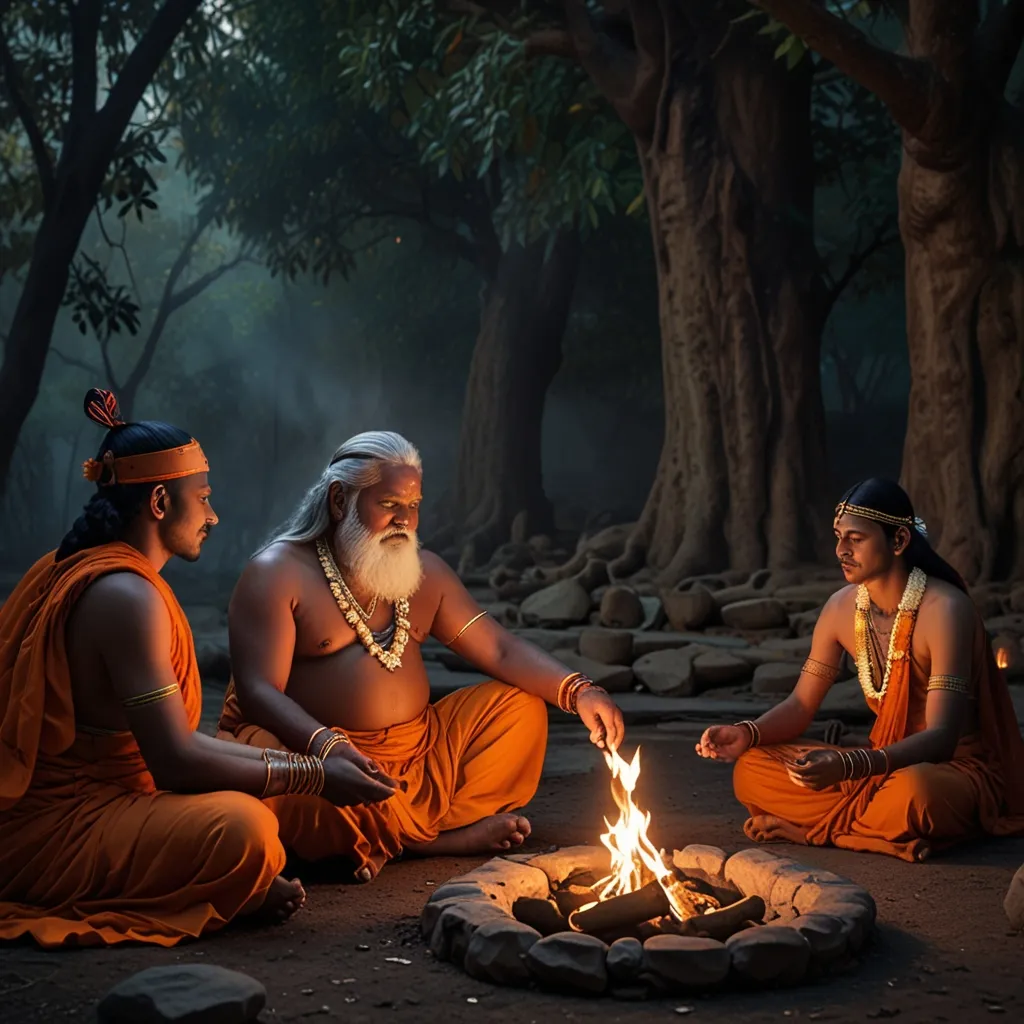The Mahabharata’s Forgotten Women: Unsung Heroines Who Changed Destiny
Beyond the clash of weapons and the thunder of war chariots, the Mahabharata conceals a tapestry of female lives whose quiet decisions shaped an empire’s fate. While we often remember the great male warriors who dominated the battlefield, it’s the women whose choices created the very conditions for the war, guided its key players, and determined its aftermath.
I find myself drawn to these forgotten women whenever I revisit this ancient epic. Their stories reveal a different kind of power – not the obvious strength of armies, but the subtle force of will that moves mountains through patience and determination.
Consider Kunti, mother of the Pandavas. Her early life reveals a woman of exceptional resourcefulness. Given away by her birth father to King Kuntibhoja, she navigated court politics from a young age. When blessed by Sage Durvasa with the ability to invoke gods, she made the bold choice to test this power – resulting in the birth of Karna. This single decision created the epic’s most tragic figure, a son raised as a charioteer who would become her legitimate sons’ greatest enemy.
“The greatest battles are not fought on battlefields but in the hearts of mothers who must choose between terrible options.”
What must it have cost Kunti to abandon her firstborn? Years later, watching him face her other sons in combat, did she regret her choice? The complexity of her relationship with Karna reveals the painful mathematics of survival for women in that era.
After marrying Pandu, Kunti’s strategic thinking came to the forefront. When Pandu could not father children due to a curse, she used her divine boon not just once but three times to ensure the continuation of the royal line. Her instruction to Madri to “share what you have brought” when Madri used the same mantra resulted in the birth of twins Nakula and Sahadeva. This seemingly small moment of generosity would later provide crucial strength to the Pandava side.
Have you ever wondered how differently the story might have unfolded if Kunti had chosen different gods to father her sons? What if she had kept all the divine mantras to herself?
Madri’s story offers a particularly poignant counterpoint. Often overshadowed by Kunti, Madri’s decision to immolate herself on Pandu’s funeral pyre represents one of the epic’s most tragic moments. Her choice left her twin sons to be raised by Kunti, creating a complex family dynamic that would influence the brothers’ relationships throughout their lives. Madri’s loyalty to her husband came at the ultimate cost, highlighting how women were often bound by societal expectations that demanded total sacrifice.
The formidable Gandhari presents perhaps the most striking example of protest within the constraints of her position. Upon learning her husband Dhritarashtra was blind, she made the radical decision to blindfold herself for life. This act transformed her marriage from an arrangement of unequal power to one of shared experience. It was a choice that simultaneously demonstrated loyalty and defiance – acknowledging her duty while refusing to accept advantages denied to her husband.
Gandhari’s maternal intensity rivaled Kunti’s. When her pregnancy continued for an unusually long time, she took matters into her own hands, forcing the birth of her children in a way that produced a hundred sons and one daughter. This act of will – deciding how and when she would become a mother – demonstrated remarkable agency in a system that typically reduced women to vessels for male heirs.
“A woman’s strength is not measured by how much she can bear, but by how she chooses to bear it.”
Later, after losing all her sons in the great war, Gandhari’s grief transformed into righteous anger. She cursed Krishna himself, prophesying the destruction of his entire clan – a curse that would ultimately come true. In that moment, this grieving mother matched the power of the divine with her own spiritual force.
What would you have done in Gandhari’s position? Would you have chosen differently at any point in her tragic journey?
The lesser-known women of the epic offer equally compelling stories of decisive action. Hidimbi (or Hidimba), a rakshasi (demoness) who fell in love with Bhima, made the courageous choice to ally with the Pandavas against her own brother. After a brief marriage to Bhima, she raised their son Ghatotkacha alone, preparing him to eventually aid his father in the great war. As perhaps the first single mother depicted in Indian literature, Hidimbi represents remarkable independence and pragmatic decision-making.
Ulupi, the Naga princess who chose Arjuna as her lover, demonstrates similar autonomy. Their brief union resulted in a son, Iravan, who would later sacrifice himself in the Kurukshetra War. Ulupi’s medical knowledge later saved Arjuna’s life when she healed him from a deadly wound. Her expertise in an area typically dominated by male sages shows the diverse skills women cultivated even within restrictive social structures.
Shikandini’s story offers one of the epic’s most fascinating examples of gender transformation. Born female as Shikhandi but raised as a male, Shikandini eventually exchanged her gender with a yaksha. This transformation allowed her to fulfill her destiny: becoming the instrument of Bhishma’s downfall on the battlefield. Her determination to claim a warrior’s role — despite the body she was born with — challenges traditional gender limitations in profound ways.
“The true measure of courage is not changing the world to fit your destiny, but changing yourself to fulfill it.”
Have you noticed how often the women in the Mahabharata make the difficult choices that men avoid? Why do you think the epic shows women as more willing to sacrifice for the greater good?
Even seemingly minor female characters prove crucial to the epic’s unfolding. Consider Sudheshna, queen of Matsya, who took Draupadi into her service during the Pandavas’ final year of exile. Her protection provided essential cover that allowed the brothers to remain hidden until their exile ended. Without her quiet alliance, the Pandavas might have been discovered prematurely, changing the entire timeline of the war.
Perhaps most intriguing are the unnamed women whose perspectives remain entirely unexplored: the handmaidens who witnessed royal conversations, the widows created by each day of battle, the common women whose lives were upended by the war. Their untold stories remind us that history typically records only those with formal power, leaving countless female experiences in darkness.
The women of the Mahabharata demonstrate that power manifests in many forms. While men wielded swords and commanded armies, women exercised influence through strategic thinking, spiritual practices, medical knowledge, and the careful cultivation of relationships. Their power operated in different realms but proved no less decisive in determining destiny.
These forgotten heroines remind us that leadership doesn’t always announce itself with trumpets. Sometimes it whispers through carefully chosen words or expresses itself through a lifetime of principled choices. The Mahabharata’s women show us that changing the world doesn’t always require dramatic gestures – sometimes it happens through the quiet persistence of those who refuse to be limited by their circumstances.
“History remembers those who shout the loudest, but destiny is shaped by those who act with purpose.”
I believe these women deserve to be remembered not just as supporting characters in men’s stories but as architects of the epic itself. Their decisions – to conceive children with gods, to blindfold themselves in protest, to raise warrior sons alone, to transform their gender – created the very conditions that made the Mahabharata possible.
What strikes me most about these women is their remarkable clarity about their own power. In an era that offered them few formal rights, they nevertheless found ways to exercise agency, protect their children, advance their principles, and sometimes even change the course of history.
As you reflect on these forgotten heroines, I invite you to consider: What would the Mahabharata look like if told primarily through female eyes? How might our understanding of power, duty, and righteousness change if we centered these women’s experiences? And what lessons might their strategic thinking offer us in navigating our own complex world?
The true legacy of the Mahabharata’s women may be this: they remind us that history is never as simple as it first appears, and that behind every great battle lie countless small decisions made by those whose names are rarely remembered but whose influence proves eternal.
